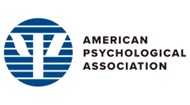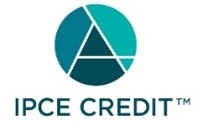
On-Demand: Anxiety: Advanced Techniques for Psychiatry and Primary Care
This medical conference provides advanced guidance on how to treat and manage patients who have anxiety disorders. In mental health and primary care practices, patients with anxiety disorders are not only common, but they also often need more of your time and resources to manage their conditions. There are many evidence-based pharmacologic and behavioral treatment options, yet practice measures show that patient outcomes often do not meet expected or desired levels of improvement.
During this event, our faculty focuses on advanced concepts that go far beyond the basics. Their guidance is 100% practical and ready for use in any primary care and mental health setting.
Re-energize your practice and apply new skills to:
- Enhance how you use cognitive interventions.
- Address multiple specific comorbidities, such as sleep, cardiac, and GI disorders.
- Use advanced psychopharmacology for all anxiety disorders and related conditions.
- Navigate medical conditions affected by anxiety, and vice versa.
- Improve outcomes for patients who have anxiety.
This is an ideal event for all clinicians in primary care practices that treat patients who have anxiety. It is also ideal for psychiatrists, psychologists, nursing professionals, and others on their practice teams.
Pricing
All participants: $595
Target Audience
This program is intended for:
- Psychiatrists
- Psychologists
- Primary Care and General Practice Physicians
- Registered Nurses
- Nurse Practitioners
- Social Workers and Allied Health Professionals
Learning Objectives
- Identify rational, evidence-based pharmacologic and non-pharmacologic therapies for patients with anxiety disorders.
- Demonstrate the ability to discuss second- and third-line treatments following an unsuccessful first SSRI trial.
- Discuss the developmental trajectories of anxiety.
- Compare the assessment, psychopharmacology, and evidence-based psychotherapies for panic disorder, PTSD, OCD and related disorders, and somatoform disorders.
- Review the course of medical conditions as they are affected by anxiety.
- Recognize advanced CBT strategies and when to apply them.
- Describe the neural circuits involved in producing anxiety.
- Discuss the genetic and environmental contributions to anxiety
- Provide additional pharmacological options for anxiety when initial plans fail.
- Identify conversion disorder and describe its genesis, progression, and treatment
- Demonstrate the ability to engage patients in mindfulness and relaxation procedures
Accreditation
In support of improving patient care, MGH Institute of Health Professions is jointly accredited by the Accreditation Council for Continuing Medical Education (ACCME), the Accreditation Council for Pharmacy Education (ACPE), and the American Nurses Credentialing Center (ANCC) to provide continuing education for the healthcare team.
Psychologists

Continuing Education (CE) credits for psychologists are provided through the co-sponsorship of the American Psychological Association (APA) Office of Continuing Education in Psychology (CEP). The APA CEP Office maintains responsibility for the content of the programs. MGH Institute of Health Professions designates this activity for 14.0 CE credit.
Physicians
MGH Institute of Health Professions designates this live activity for a maximum of 14.0 AMA PRA Category 1 Credits ™. Physicians should claim only credit commensurate with the extent of their participation in this activity.
Nursing
MGH Institute of Health Professions designates this activity for 14.0 contact hours for nurses. The American Academy of Nurse Practitioners Certification Board (AANPCB) accepts credit from organizations accredited by the ACCME and ANCC.
Social Workers

As a Jointly Accredited Organization, the MGH Institute of Health Professions is approved to offer social work continuing education by the Association of Social Work Boards (ASWB) Approved Continuing Education (ACE) program. Organizations, not individual courses, are approved under this program. State and provincial regulatory boards have the final authority to determine whether an individual course may be accepted for continuing education credit. MGH Institute of Health Professions maintains responsibility for this course. Social workers completing this course receive 14.0 clock hours for continuing education credits.
IPCE Credit

This activity was planned by and for the healthcare team, and learners will receive 14.0 Interprofessional Continuing Education (IPCE) credits for learning and change.
Anxiety: Advanced Techniques for Psychiatry and Primary Care 2020
Enduring
November 8, 2020-November 8, 2021
8:00-8:10 AM Introduction and Welcome
David H. Rubin, MD
Module 1: A Very Brief Review of the Basic Science of Anxiety
8:10-8:30 AM The Neuroscience of Anxiety
Robert R. Althoff, MD, PhD
8:30-8:50 AM Anxiety Across the Lifespan
David H. Rubin, MD
8:50-9:10 AM Genetic and Environmental Contributions to Anxiety
Robert R. Althoff, MD, PhD
9:10-9:40 AM Panel
Panelists: Robert R. Althoff, MD, PhD, David H. Rubin, MD
Module 2: Mastering the Core of CBT: Advanced Practice with Exposure and Cognitive Techniques
10:00-10:20 AM Assessment and Phenomenology
Robert R. Althoff, MD, PhD
10:20-10:40 AM Effective Use of Exposure: Novel use of an old tool
Aude Henin, PhD
10:40-11:00 AM Novel Advanced Cognitive Techniques: Third Wave and Beyond
Susan Sprich, PhD
11:00-11:30 AM Panel
Moderator: David H. Rubin, MD
Panelists: Robert R. Althoff, MD, PhD, Aude Henin, PhD, Susan Sprich, PhD
Module 3: Medical Comorbidity
12:30-12:50 PM Management of Anxiety in Cardiac Care
Theodore A. Stern, MD
12:50-1:10 PM CBT for Invasive Medical Interventions
Aude Henin, PhD
1:10-1:30 PM Respiratory Illness and Anxiety
Theodore A. Stern, MD
1:30-1:50 PM CBT for Management of Chronic Medical Conditions
Susan Sprich, PhD
1:50-2:10 PM The Intersection of GI Disorders and Anxiety – A Way Forward
Theodore A. Stern, MD
2:10-2:50 PM Panel
Moderator: Aude Henin, PhD
Panelists: Theodore A. Stern, MD, Susan Sprich, PhD
Module 4: Advanced Psychopharmacology
3:10-3:30 PM Benzodiazepine: Are they all the same, are they all bad?
Jefferson B. Prince, MD
3:30-3:50 PM Antidepressants: Advancing Past the Single SSRI Trial
David H. Rubin, MD
3:50-4:10 PM Plans C, D, and E: Moving down the treatment algorithm for refractory anxiety
Jefferson B. Prince, MD
4:10-4:50 PM Panel
Moderator: Robert R. Althoff, MD, PhD
Panelists: Jefferson B. Prince, MD, David H. Rubin, MD
DAY 2: ENCHANCING TREATMENT FOR SPECIFIC ANXIETY CLUSTERS
8:00-8:10 AM Introduction and Welcome
David H. Rubin, MD
Module 5: PTSD
8:10-8:30 AM Psychopharmacology of PTSD
Robert R. Althoff, MD, PhD
8:30-8:50 AM CBT for PTSD
Aude Henin, PhD
8:50-9:20 AM Panel
Moderator: David H. Rubin, MD
Panelists: Robert R. Althoff, MD, PhD, Aude Henin, PhD
Module 6: Panic Disorder
9:20-9:40 AM Psychopharmacology of Panic Disorder
Jefferson B. Prince, MD
9:40-10:00 AM CBT for Panic Disorder
Aude Henin, PhD
10:00-10:30 AM Panel
Moderator: David H. Rubin, MD
Panelists: Jefferson B. Prince, MD, Aude Henin, PhD
Module 7: OCD and Related Disorders
10:50-11:10 AM Psychopharmacology of OCD
Lisa M. Zakhary, MD, PhD
11:10-11:30 AM Body Dysmorphic Disorder
Lisa M. Zakhary, MD, PhD
11:30-11:50 AM CBT for OCD and Related Disorders
Susan Sprich, PhD
11:50-12:10 PM Trichotillomania, Skin Picking, Hoarding
Lisa M. Zakhary, MD, PhD
12:10-12:40 PM Panel
Moderator: Robert R. Althoff, MD, PhD
Panelists: Lisa M. Zakhary, MD, PhD, Susan Sprich, PhD
Module 8: Somatic Symptom and Related Disorders
1:40-2:00 PM Somatic Symptom Disorder & Illness Anxiety Disorder
Theodore A. Stern, MD
2:00-2:20 PM Assessment and Management of Sleep Disorders in the Context of Anxiety
Jefferson B. Prince, MD
2:20-2:40 PM Conversion Disorder
Theodore A. Stern, MD
2:40-3:00 PM CBT for Somatic Symptoms and Related Disorders
Susan Sprich, PhD
3:00-3:30 PM Panel
Moderator: Jefferson B. Prince, MD
Panelists: Theodore A. Stern, MD, Jefferson B. Prince, MD, Susan Sprich, PhD
Module 9: Enhancing Treatment Outcomes: Augmenting CBT
3:50-4:10 PM Motivational Interviewing to Engage the Anxious Patient
Aude Henin, PhD
4:10-4:30 PM Mindfulness and Relaxation
Susan Sprich, PhD
4:30-5:00 PM Panel
Moderator: David H. Rubin, MD
Panelists: Aude Henin, PhD, Susan Sprich, PhD
Policy on Faculty and Provider Disclosure
Disclosures:
Robert R. Althoff, MD, PhD
Investigator: NIMH, NIDA
Grand Funds (Medical Student Training Program Faculty Sponsor and PI): Klingenstein Third Generation Foundation
Ownership Equity (Partner): WISER Systems, LLC
Aude Henin, PhD
Royalties (Book Authorship): Oxford University Press
Jefferson Prince, MD
Author Fee: Harvard Health Publications
Susan Sprich, PhD
Royalties (Co-Author): Oxford University Press
Royalties (Co-Edited Book): Springer
Associate Editors for “Cognitive and Behavioral Practice”: Association for Behavioral and Cognitive Therapies (ABCT)
Theodore A. Stern, MD
Editor of Psychosomatics: Academy of Consultation-Liaison Psychiatry
Royalties: Elsevier
Lisa M. Zakhary, MD, PhD
Research Support: Promentis Pharmaceuticals, Inc.
Jefferson Prince, MD
David Rubin, MD
Robert Althoff, MD, PhD
Jefferson Prince, MD
David Rubin, MD
Theodore Stern, MD
Lisa Zakhary, MD, PhD
Available Credit
- 14.00 AMA PRA Category 1 Credit™
This activity has been planned and implemented in accordance with the accreditation requirements and policies of the Accreditation Council for Continuing Medical Education (ACCME) through the joint providership of IHP and Massachusetts General Hospital. IHP is accredited by the ACCME to provide continuing medical education for physicians.
IHP designates this Enduring activity for a maximum of 14.00 AMA PRA Category 1 Credit™. Physicians should only claim credit commensurate with the extent of their participation in the activity.
- 14.00 Nursing Contact Hours
Massachusetts General Laws, Chapter 13, sections 13, 14, 14A, 15 and 15D and Chapter 112, sections 74 through 81C authorize the Board of Registration in Nursing to regulate nursing practice and education.
This program meets the requirements of the Massachusetts Board of Registration in Nursing (244 CMR 5.00) for 14.00 contact hours of nursing continuing education credit. Advance practice nurses, please note: Educational activities which meet the requirements of the ACCME (such as this activity) count towards 50% of the nursing requirement for ANCC accreditation.
- 14.00 Social Workers
As a Jointly Accredited Organization, the MGH Institute of Health Professions is approved to offer social work continuing education by the Association of Social Work Boards (ASWB) Approved Continuing Education (ACE) program. Organizations, not individual courses, are approved under this program. State and provincial regulatory boards have the final authority to determine whether an individual course may be accepted for continuing education credit. MGH Institute of Health Professions maintains responsibility for this course. Social workers completing this course receive 14.00 clock hours for continuing education credits.
- 14.00 Participation
This course allows other providers to claim a Participation Certificate upon successful completion of this course.
Participation Certificates will specify the title, location, type of activity, date of activity, and number of AMA PRA Category 1 Credit™ associated with the activity. Providers should check with their regulatory agencies to determine ways in which AMA PRA Category 1 Credit™ may or may not fulfill continuing education requirements. Providers should also consider saving copies of brochures, agenda, and other supporting documents.
- 14.00 Psychologists CE Credit
Continuing Education (CE) credits for psychologists are provided through the co-sponsorship of the American Psychological Association (APA) Office of Continuing Education in Psychology (CEP). The APA CEP Office maintains responsibility for the content of the programs. MGH Institute of Health Professions designates this activity for 14.00 CE credit.
Price
Expiration Date: February 7, 2028
Required Hardware/software
Hardware/Software Specifications
This internet-based CME activity is best experienced using Internet Explorer 8+, Mozilla Firefox 3+, and Safari 4+. This Website requires that JavaScript and session cookies be enabled. Certain activities may require additional software to view multimedia, presentation, or printable versions of the content. These activities will be marked as such and will provide links to the required software. That software may be: Adobe Flash, Adobe Acrobat, Microsoft PowerPoint, and Windows Media Player.
Optimal System Configuration
Flash Player: Adobe Flash Player 10.1+
Browser: Firefox 3+, Internet Explorer 8.0+, Safari 4.0+, or Google Chrome 7.0+
Operating System: Windows XP+ or Mac OS X 10.4+
Internet Connection: 1 Mbps or higher
Minimum Requirements
Windows PC:500-MHz Pentium II; Windows XP or higher; 128 MB RAM; Video Card at least 64MB of video memory; Sound Card at least 16-bit; Macromedia Flash Player 10 or higher, audio playback with speakers for programs with video content; Firefox 1.1+, Internet Explorer 7.0+, Safari 1.0+, Google Chrome, or Opera
Macintosh: Mac OS X 10.3 or higher with latest updates installed; 1.83MHz Intel Core Duo or faster; RAM: 128MB or more; Video Card: at least 64MB of video memory; Sound Card: at least 16-bit

 Facebook
Facebook X
X LinkedIn
LinkedIn Forward
Forward